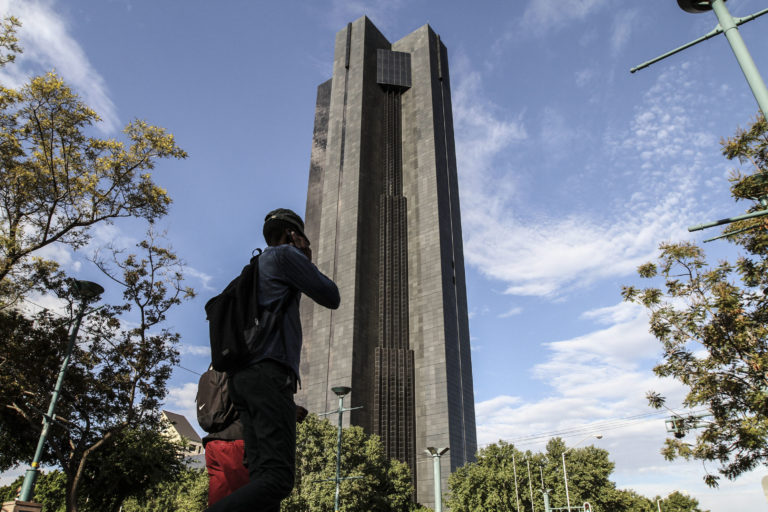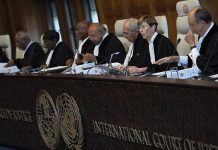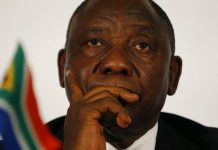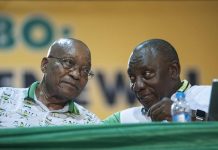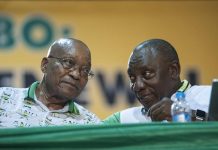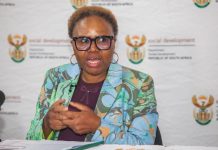Experts have welcomed measures announced by President Cyril Ramaphosa for the 21-day nationwide lockdown, but say more needs to be done to overall boost the economy. The shutdown, which is in place as of today, is the government’s attempt to reduce the spread of Covid-19.
While the aim is to save lives, with restaurants closed and many mines and industries forced to stop working, the lockdown will hit the country’s gross domestic product (GDP) hard.
Although there is no real formula for how to solve this crisis, experts say the government will need to cough up more money in the coming days in order to avoid overall negative economic growth for 2020.
South Africa is already in a recession, with GDP contracting in the last two quarters of 2019. In the last decade, the government has borrowed a trillion rand with little to show for the spending. Without Covid-19, the way out of the recession would be to boost spending so the economy can grind into growth — the opposite of what is now happening.
But the president said this drastic lockdown measure was necessary to avoid the country finding itself in a situation such as the one in which Italy currently finds itself. In his address to the nation on Monday evening, he said: “I am concerned that a rapid rise in infections will stretch our health services beyond what we can manage and many people will not be able to access the care they need.”
By Wednesday, Italy had a death toll of 7503, with 74386 people tested positive and 9362 people recovered. The situation there has put a severe strain on that country’s public health system, with doctors being forced to prioritise patients who are more likely to survive, leaving others to die.
To help workers and industries during a shutdown, an increasing number of countries are pushing through stimulus packages. The United States is finalising a $2-trillion stimulus package, the largest in its history, this week.
South Africa does not have that kind of money, or much extra money at all. Instead, the government has chosen to repurpose money from different departments in order to channel it to fight Covid-19. This is a way of attempting not to increase the country’s debt, which is already nearing 70% of GDP. Increasing that debt would mean debt repayments take up ever more of the annual budget.
The government’s assistance to companies, announced over the course of this week, range from tax rebates for companies to a solidarity fund that relies on donations from the public, and workers to be paid while they stay home. This will be done through the temporary employee relief scheme and the Unemployment Insurance Fund for the duration of the lockdown.
The department of small businesses development has budgeted more than R500-million to aid distressed companies and the department of tourism has put R200-million towards assisting companies that are struggling in its sector due to Covid-19.
Our local markets — echoing international markets — are signalling that the outcome of this virus is unknown.
Kabelo Tshola, portfolio manager at FNB Wealth and Investments, says the interventions aim to support the most exposed sectors to survive a downturn in economic activity until such point as business normalises.
“Without the drastic measures, we could have a longer-term adverse impact on our economy that would devastate lives as well,” he says.
But independent economist Duma Gqubule says despite the measures that the government has put in place, he forecasts that there will be a GDP loss of between R600-billion and R800-billion during this time of inactivity.
“What I have a problem with is that no one has seemed to model the likely economic impact of a shutdown,” says Gqubule.
Gqubule told the Mail & Guardian that during the global financial crisis, South Africa had a 1.5% decline in GDP and subsequently lost one million jobs between December 2008 and March 2010.
Gqubule feels that, looking at this year’s GDP loss during this downtime, it could potentially result in more than three times what happened during the 2008 global financial crisis. This means two million jobs are definitely at risk.
There will be people who are going to starve over the next months and as it stands, the government has not carefully thought about the economic impact of this “calamity” during the lockdown and afterwards, Gqubule says.
Anja Smith, a health economist and health systems analyst, says that for now, the government’s approach is sufficient, especially given the financial difficulties the country is in. But she adds that, depending on what happens in the next three weeks, the government could readjust its strategy as the severity of the crisis becomes evident.
These sentiments are echoed by chief economist at IQ Business, Sifiso Skenjana, who adds that the country’s health infrastructure could come under severe strain during this period. Although the government has informed its citizens about the public health facilities that have been dedicated to deal with Covid-19 patients, Skenjana says the government should give the public more information about the capacity of the country’s health infrastructure.
As it stands, South Africans do not know how many ventilators, beds or sanitary equipment the health facilities have, and how many they need in order to deal adequately with the coronavirus, he says.
Gqubule says the country must think about tackling the recession while clamping down on the virus. It has to be done simultaneously, and then recession-busing must receive more attention if and when the country has managed to flatten the curve of Covid-19 infections.
He says the country’s trend growth was under 1% before the global pandemic, and under those circumstances he would have advocated for a different type of a “stimulus package”. Government should have worked to protect the incomes of most South Africans by looking into direct cash benefits, he says. This would see the government directly taking out money to pay people. This has been done in Denmark, where 75% of incomes will be protected, and the United Kingdom, where 80% of incomes will be safeguarded.
Gqubule says this will “prevent the ship from sinking and [will see the economy] just achieving 0% growth.”
Monetary policy also intensified its efforts to help financial markets breathe during this time. On Wednesday, the South African Reserve Bank (SARB), announced that it would begin buying an unspecified number of government bonds as part of additional emergency policy measures aimed at easing a severe liquidity crunch triggered by the coronavirus.
The Bank said: “The SARB will commence a programme of purchasing government securities in the secondary market. The purchases will be conducted across the yield curve. In addition to providing liquidity and promoting the smooth functioning of domestic financial markets, this will allow the SARB to enhance its monetary policy portfolio.”
“This is a major, very much necessary, crossing of the Rubicon by the SARB in response to the breakdown of local liquidity conditions and dysfunction in recent days in the bond markets,” says Peter Attard Montalto, head of capital markets research at Intellidex.
Montalto said the 100 basis points rates cut from last week Thursday offered a price (of money) reduction, but not liquidity, which was needed.
He adds that the SARB has shown it can react to liquidity pressure “to keep the show on the road. It has updated the pea-shooter to a bazooka”.
Tshegofatso Mathe and Thando Maeko are Adamela Trust business reporters at the Mail & Guardian

